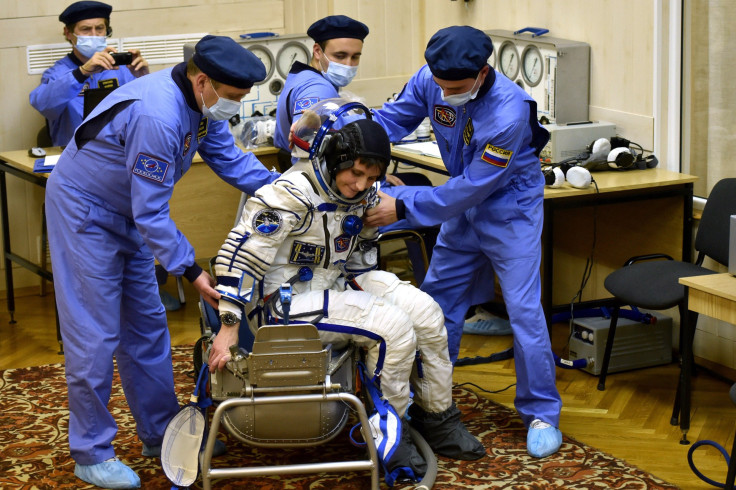Space Travel Makes Your Skin Thin: Report

Spending six months in space might thin your skin by up to 20 percent, according to a team of researchers led by Karsten Koenig from the department of biophotonics and laser technology at Saarland University in Germany. Thinning of the epidermis -- the outermost layer of skin cells -- is a process typically associated with aging.
“So far we have no explanation yet, and we are waiting for the other astronauts to figure out what's going on and maybe to try to figure out how we can protect, how we can help so that this epidermis is not shrinking,” Koenig told Reuters.
Scientists have long known that even with daily exercises in the zero gravity environment of space, muscular atrophy can take place because the muscles are no longer being used to support the weight of the body against Earth’s pull. Additionally, astronauts can suffer from vision problems as lack of gravity’s “downward” pull allows pressure to build on the eyeballs. Earlier studies have shown that astronauts spending long months aboard the International Space Station (ISS) lose bone density and strength at a rate of up to 14 percent every six months.
“NASA and ESA -- the European Space Agency -- came to us and asked, ‘is it possible to also look in the skin of astronauts? Because we want to know if there’s any aging process going on or what kind of modifications happened to astronauts as they work for six months out in space,’” Koenig told Reuters.
The study of high-resolution images of the skins, obtained using ultrashort femtosecond laser pulses, of three astronauts -- including Italian astronaut Samantha Cristoforetti who holds the record for the longest single spaceflight by a woman -- before and after a trip into space, revealed “interesting” results, Koenig added.
“It seems that there is a strong production of collagen; so suddenly these astronauts have more collagen. It means there is some sort of anti-aging effect, at least in the dermis - the lower part of the skin,” he told Reuters. “We found that the epidermis, in particular the part of the living cells … is shrinking, so the skin gets thinner.
“For sure it’s not so good if the epidermis gets thinner and thinner,” he added.
And, given that NASA is currently planning manned missions to Mars, which would require at least a year away from Earth, further studies and experiments would be needed to examine the effect of microgravity on astronauts’ health.
© Copyright IBTimes 2024. All rights reserved.












